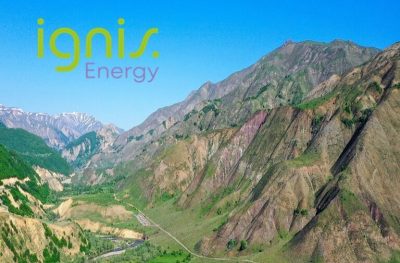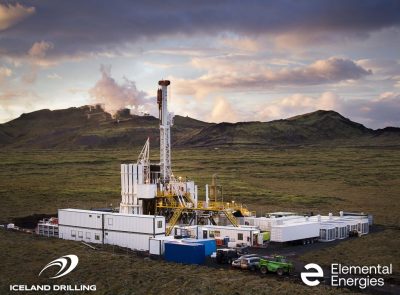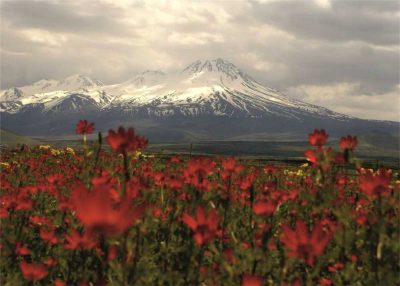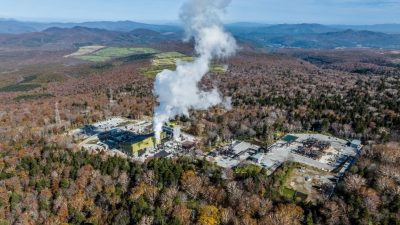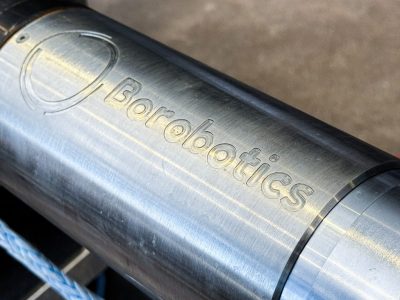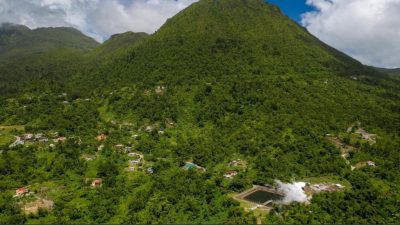Counties loose money from geothermal leases to the Feds
Counties in Nevada have lost a lot of money in income from geothermal leases, because the U.S. Interior Department pulled the counties' share of revenue.
In “rural Nevada counties have lost hundreds of thousands of dollars in income over the past year because of a federal money grab that has yet to be reversed.” so recent news from Nevada.
“Ten months ago, the U.S. Interior Department, in its annual budget request to Congress, commandeered counties’ share of revenue generated from geothermal energy rent and royalties. The move diverted to the department’s programs millions of dollars destined for rural county coffers across the West.
The change, which affected at least six states, was overlooked by the congressional delegations of every major geothermal energy state, including Nevada and California. In March, several politicians, including Sens. Harry Reid and John Ensign as well as Rep. Dean Heller, introduced legislation that would return the revenue. But the legislation was attached to an unrelated bill, which failed to pass.
That was more than four months ago and 12 rural Nevada counties are still struggling to maintain roads and pay teachers.
“It gives away a huge amount of revenue for the counties at a time when we need those revenues,” Churchill County Manager Brad Goetsch said. “It’s devastating for the rural counties in Nevada.”
Geothermal revenue is an important income source for many rural counties, but especially for Churchill County, Nevada’s biggest geothermal producer with six operating plants, three in construction and 14 planned. It has made more money in geothermal rents and royalties since 2007 than any other county in the nation, according to Bureau of Land Management and Minerals Management Service records.
Geothermal revenue makes up about 10 percent of the county’s total income, Goetsch said.
The county can generally depend on getting at least $200,000 a year from geothermal energy rent and royalties, although that number soars when the BLM puts large lots of valuable land in the county up for lease in its annual auctions. In 2009, Churchill’s disbursement from the BLM was more than $4.2 million.
The county expected to get at least a few hundred thousand dollars this year. The latest geothermal lease auction in Nevada brought in $2.76 million. Half of that goes to the state. The other $1.38 million would normally be split, half to the BLM and half distributed among counties where the leased parcels are located.
Thirteen of the 75 parcels newly leased this year were in Churchill County.
The counties are big supporters of the geothermal industry and want it to grow in Nevada, but only as long as they get the money they need to offset the costs of hosting the geothermal plants.
Past geothermal disbursements have paid for new firetrucks that can respond to geothermal plant fires as well as house fires, to repair roads torn up by construction trucks rolling to and from geothermal energy projects, and to hire teachers for schools swollen with the children of construction workers, Goetsch said.
“It’s not because we have our hands out,” he said. “These companies have a huge impact on our communities.”
The rural counties want the money back and they want to keep it permanently.
The Interior Department was able to take the money because the 2005 law that created the revenue-sharing system made it optional, at the discretion of Congress and the Interior Department.
When the department submitted its 2010 fiscal year budget to Congress, the Senate reallocated counties’ share of the revenue to the Interior Department, of which the BLM is a part. The House version left it intact, but its bill was superseded by the Senate version.
Now counties want the income to be permanently guaranteed and they want it protected from state and federal money grabs.
Of course, all of this was supposed to be fixed by now. Reid, Heller and Ensign promised in March a quick resolution and return of the money. But after the initial attempt to get the legislation through Congress failed, it was never reintroduced.
A version of the legislation is still alive, as part of the Supplemental Appropriations Act of 2010. That legislation was passed once in the Senate but is up for a re-vote after the House of Representatives added new provisions. It is not yet scheduled for a vote.
Reid’s office says it plans to include the fix in upcoming energy legislation. Meanwhile he’s introduced legislation to help the geothermal industry fund exploratory drilling.”
Source: Las Vegas Sun







